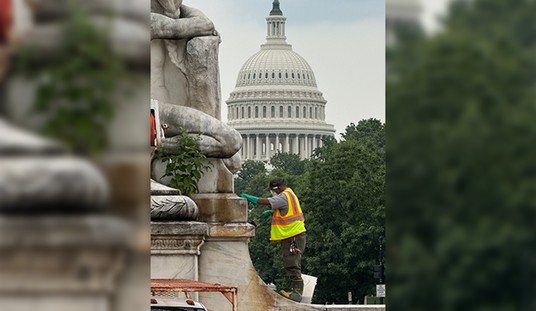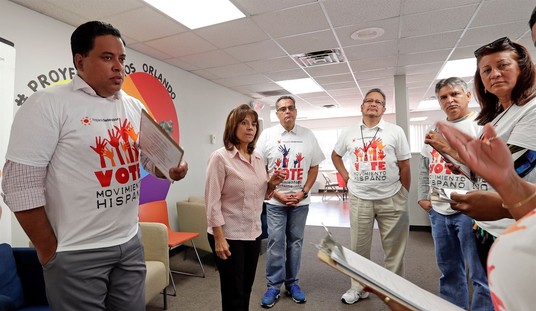Winston Churchill once famously quipped, “If you’re not a liberal at twenty you have no heart; if you’re not a conservative at forty you have no brain.” This is an important mantra to keep in mind when analyzing the fight for the political mind of the much-maligned millenial generation in light of Reason’s most recent survey on Millenials’ attitudes about government. Although Millenials still tend to identify and vote Democrat, this trend is slowly shifting; and although Millenials hold a number of troubling views about the role of government, their overall disillusionment with the actual function of government provides some hope for the future. The bottom line result is that the Millenial generation can’t and shouldn’t be written off by the GOP as a lost cause.
First, the top line news in terms of party ID is bad for the GOP but not alarmingly so:
A majority of millennials, 52 percent, identify themselves as independents when first asked. Just 16 percent self-identify as Republicans, while 32 percent say they’re Democrats. Including those leaning towards a party, 43 percent of millennials identify as Democrats, 35 percent as independents, and only 23 percent classify themselves as Republicans.
Within the context of previous generations, however, this is not an alarming partisan split as all generations become increasingly conservative as they age. Within this very poll, older millenials already show this trend, and as compared with previous Reason polling for this generation, the Democrats’ voting edge within this generation may already be eroding. 64 per cent of millenials voted for Obama in 2012; only 53 per cent say they plan to vote for a Democrat in 2014.
Second, however, and more encouraging for conservatives/libertarians, Millenials have already internalized a robust level of distrust in government, both in terms of its integrity and efficiency.
Nearly two-thirds of millennials, 63 percent, think government regulators favor special interests, whereas just 18 percent feel regulators act in the public’s interest. Similarly, 58 percent of 18-to-29 year-olds are convinced government agencies abuse their powers, while merely 25 percent trust government agencies to do the right thing.
Consistent with this healthy stated level of distrust, Millenials tend to favor, in broad brush strokes, evisceration of programs and platforms that have long been considered sacred cows of government function, and to overwhelmingly favor reducing the size of the federal behemoth:
- 73 percent of millennials favor allowing private accounts for Social Security; 51 percent favor private accounts even it means cutting Social Security benefits for current and future retirees because 53 percent of millennials say Social Security is unlikely to exist when they retire
- 64 percent of millennials say cutting government spending by 5 percent would help the economy
- 59 percent say cutting taxes would help the economy
- 57 percent prefer a smaller government providing fewer services with low taxes, while 41 percent prefer a larger government providing more services with high taxes
- 57 percent want a society where wealth is distributed according to achievement
- 55 percent say reducing regulations would help the economy
- 53 percent say reducing the size of government would help the economy
Troublingly, however, millenials hold beliefs that are flatly inconsistent with the above stated goals and which would, if anything, vastly increase both the size and reach of the Federal Government. To wit,
- 74 percent of millennials say government has a responsibility to guarantee every citizen has a place to sleep and enough to eat
- 71 percent favor raising the federal minimum wage to $10.10 an hour
- 69 percent say it is government’s responsibility to guarantee everyone access to health care and 51 percent have a favorable view of the Affordable Care Act
- 68 percent say government should ensure everyone makes a living wage
- 66 percent say raising taxes on the wealthy would help the economy
- 63 percent say spending more on job training would help the economy
- 58 percent say the government should spend more on assistance to the poor even it means higher taxes
- 57 percent favor spending more money on infrastructure
- 54 percent favor a larger government that provides more services, when taxes are not mentioned
- 54 percent want government to guarantee everyone a college education
Obviously, it is not possible to square the premise that a government that is corrupt, inefficient, and in desperate need of pruning should be made to be in the business of providing food and housing for each and every one of America’s citizens. It is likewise impossible to reconcile hostility towards excessive government regulation over the economy with support for a government mandated “living wage.”
Overwhelmingly, the specifics of what Millenials want government to do are diametrically opposed with how they want government to look and the place they want it to occupy in everyday life. That is why it is vitally important to the political and social health of this country that the conservative movement and the GOP not cede this ground to liberals, but rather must be willing to tirelessly and patiently educate Millenials (and the rest of America, while they are at it) about why the specific items are good and necessary things in America, but that government is not at all the entity that should be providing them. Every person in America can have food and shelter; but when the government is put in charge of that enterprise, disastrous results will follow both in terms of the provision of food and shelter and also in terms of the size and scope of the government that you hate and distrust.
It’s all too easy sometimes for the older generations to throw up their hands in disgust at “kids these days” and to some large extent that’s perhaps a fair impulse. But the rising generation shows some overall sound instincts about the evils of government intrusion into the marketplace and the value of merit-based reward. If we refuse to cede the policy field with these voters and educate them about how free-market policies can better provide the results they want than government interference, then both the GOP and the country at large can be saved from the ruinous effects of liberalism.















Join the conversation as a VIP Member